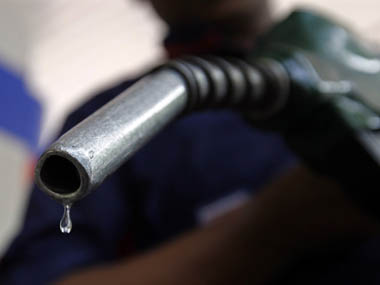Slowly, but surely, using favourble trends in global oil prices, the Modi government is undoing the damage done to the Indian oil sector over the last decade. In a barely noticed decision, the oil ministry has decided to free ONGC and public sector oil and gas producers from having to subsidise cooking gas in 2015-16. This means ONGC, Oil India and Gail will have to carry the subsidy can only for that holy cow called kerosene - the alleged poor man’s fuel that is actually largely used by the oil mafia to adulterate diesel. This is a move in the right direction and should end partially the misgovernance of the UPA years, when profits were merrily transferred from one public sector listed entity to another to keep oil prices low - well below economic levels. During the UPA years, Rs 8,33,482 crore was paid out as subsidies to oil consumers, most of them undeserving, with energy producers like ONGC paying roughly about a third of the bill. [caption id=“attachment_2182231” align=“alignleft” width=“380”]  Reuters[/caption] With the freeing of diesel prices last October, and the shift of LPG subsidies to direct cash payments from April this year, the overall subsidy burden has come down, enabling the government to free ONGC, et al, from having to pay subsidies on diesel and LPG this year. However, even the Modi government is in Trishanku-land – and its commitment to full deregulation seems shaky. It is neither fully committed to deregulation nor its abandonment. Petroleum Minister Dharmendra Pradhan said on Tuesday (21 April) that “the subsidy-sharing formula for the fourth quarter of FY15 can be extended to FY16 (current financial year) if the current market situation prevails.” This means ONGC will not have to subsidise the oil marketing companies for underpriced LPG this year only if oil prices stay benign. This is simply not right. It means the government is only a fair-weather deregulator and, if global oil prices increase, ONGC and the energy producers will be stuck again with higher subsidy bills. The only sensible way to deal with the issue is to be conceptually clear on two things: one, that subsidy is a politically determined payment and hence should not be paid on the government’s behalf by someone else. It is also a source of corporate misgovernance, since the government has no right to force allegedly “independent” boards and listed entities to part with their surpluses non-transparently. Subsidy-sharing by the public sector is actually a kind of fiscal accounting fraud. By asking the public sector to share it, the government is hiding the actual level of fiscal deficit it is incurring. Commercial entities like ONGC cannot be forced to pay subsidies just to make Arun Jaitley look good in front of the rating agencies. This kind of bad account-keeping was the hallmark of the P Chidambaram years. Arun Jaitley should not follow them. The way forward should be clear. #1: Petrol and diesel prices should be entirely market-determined. The government seems keen on this. It should now make this commitment clear and irrevocable regardless of global crude prices. #2: LPG prices, with subsidies having been shifted to direct cash transfers, should be deregulated and the level of subsidy fixed in absolute terms. This way consumers will be partly protected, but not fully if global prices rise. They will benefit if prices fall. #3: Kerosene should be the next product to be shifted to the cash transfer route. This subsidy too should come from the exchequer and not the oil and gas producers. This way kerosene can be deregulated and adulteration will come down. If the government feels that ONGC and the rest are making excess profits occasionally from high global oil prices - which can happen too - it should legislate a windfall profits tax that would apply to net profits over and above normal corporation tax if global oil prices exceed a certain level - say, $ 100 a barrel. This floor can be indexed to inflation. But this windfall profits tax should apply to all oil and gas producers and not just ONGC, Oil India and Gail. Fairness dictates that the public sector alone should not be the government’s perennial and only milch cow. Jaitley should stop the loot of public sector oil companies.
The government’s decision to free ONGC from having to subsidise LPG this year is good, but this decision cannot depend on the vagaries of global oil prices. Deregulation cannot be brought in or abandoned based on convenience
Advertisement
End of Article
Written by R Jagannathan
R Jagannathan is the Editor-in-Chief of Firstpost. see more


)

)
)
)
)
)
)
)
)



